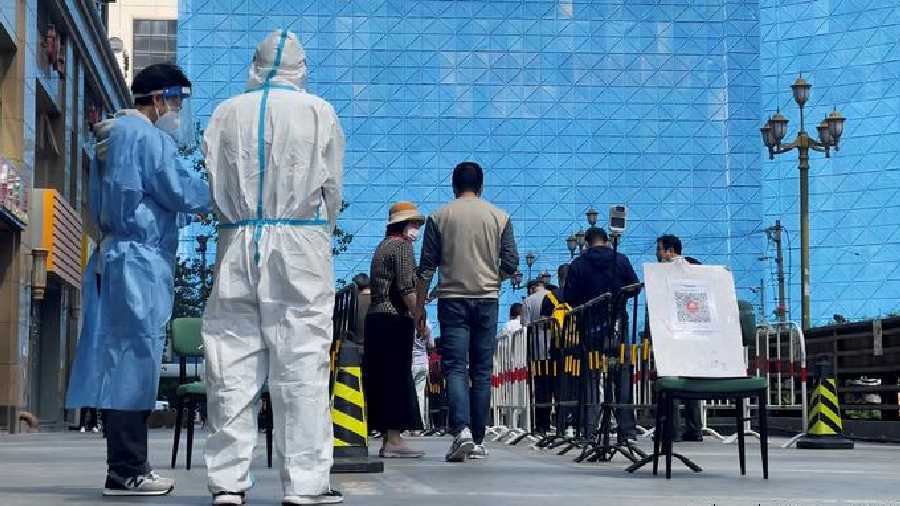Infected patients were quarantined alongside those who tested negative. No food for hours, despite repeated requests. Lines of buses, loaded with people, waiting late into the night to drop them off at makeshift isolation centres.
These are the scenes described by residents of Lhasa who have been locked down for one month as officials try to contain a coronavirus outbreak.
Lockdowns have become almost commonplace in China, which remains bent on eliminating the coronavirus even as the rest of the world tries to live with it.
But the recent calls for help out of Tibet, as well as Xinjiang — two border regions where the Chinese government has put in place highly repressive controls — speak to how desperate conditions have become there, where many residents are usually intimidated into keeping quiet.
Yet the incentive for the authorities to silence discontent is also stronger than usual.
The Chinese Communist Party is slated to hold a major political meeting next month, where its leader, Xi Jinping, is almost certain to extend his tenure. In the run-up, it is crucial for officials to ensure that the effort to achieve “zero Covid” appears successful.
The result is a vicious cycle. The authorities enact ever-harsher quarantine and censorship rules. Those, in turn, create more hardships and dissatisfaction.
“The social media posts you see from people in Lhasa are all about suffering, but that’s the real Lhasa. Lhasa’s public announcements, I feel they’re all fake,” said a food delivery worker in the city who gave only his surname, Min, for fear of official retaliation.
The government has promoted positive videos of officials encouraging frontline workers and promising food and medicine.
But Min said he was quarantined with five family members in an unfinished apartment building, even though he had not tested positive.
Workers said he could be released if his latest test, on September 10, also came back negative — but it had been days with no word on a result.
New York Times News Service










